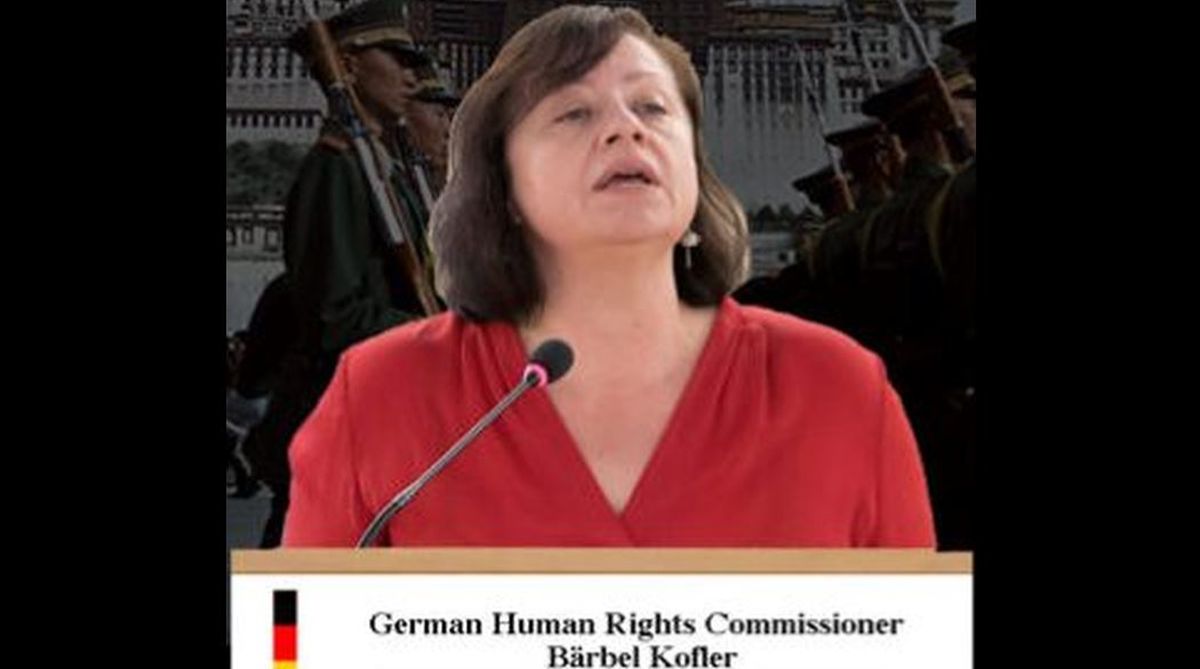German Human Rights Commissioner Barbel Kofler termed the human rights situation in Tibet as critical and said the Chinese government was imposing excessive force in the region.
She was chairing the German-Chinese Human Rights Dialogue in Lhasa in Tibet on 6 and 7 December after her request to visit Xinjiang was refused by Chinese government.
Advertisement
Appraising about the change in venue of the dialogue to Tibet, she said that the ‘critical human rights situation in Tibet’ made the place appropriate for holding the dialogue. She also highlighted ‘the excessive controls, punishment of relatives for the crimes of family members, prohibition of normal religious freedom and patriotic education that are being carried out in Tibet even to this day.
Barbel Kofler expressed deep concern about the human rights situation in China and emphasised that ‘it has become more serious in recent years.’
The last bilateral human rights dialogue was held in Germany in 2016 after which China had cancelled the 2017 dialogue scheduled to be held in China.
Barbel’s Tibet visit comes as a positive development considering China has in recent years vehemently rejected Tibet-visit requests made by Human Rights officials including that of former high commissioner for human rights Prince Zeid.
In the recently concluded Third Universal Periodic Review of China (November 2), Germany had recommended China to ‘respect rights of freedom of religion and belief, opinion and expression, peaceful assembly and culture also for Tibetans, Uyghurs and other minorities.’
She expressed shock on the reports of the treatment of the Turkic Uighur minority and expressed disappointment at being denied access to Xinjiang which would have helped her gain ‘first hand impression of the situation’.
But she assured that she would ‘continue to push for permission to visit “Xinjiang”.’
“In light of the recommendations made by Germany to China and we hope that the German Human Rights Commissioner will seize the opportunity to engage with China on all the highlighted areas of concern.
In addition, we hope that this dialogue will help build regular and close exchanges between the two countries to address the rights situation in all the regions under the PRC and in particular the gross human rights violations in Tibet,” a Central Tibetan Administration official said.











